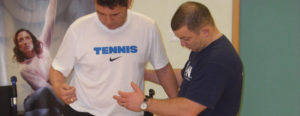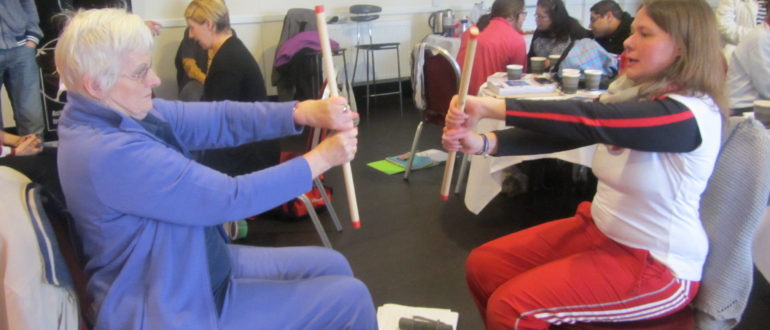Even you have hired the help of a trainer or a therapist to get you started (advised), you must have input towards your own rehabilitation and the way you want to go. Knowledge is power. My aim is to show you exactly how to achieve 6 things:
- Correct balance, co-ordination and posture over time
- Increase muscular, tendon and ligament strength and fitness over time
- Decrease spasticity and increase specific functional movement return over time
- Increase confidence and remove fear of the consequences of exercising
- Become progressively more self-sufficient
- Become productive in an occupation and be happy with life
Can you take up the challenge? These can all be achieved by you to a certain degree, however old you are, if you want them badly enough and are prepared to sacrifice some time and effort. Can a generic programme be created? For example, is there one ‘programme’ that will fit everyone? It would be much easier that way, right?
The simple answer is ‘no’. But there are many things that all stroke survivors must do, and many things that most will need to do. You will start with basic tasks that you need to master in order that you can work towards more complex tasks. Everything you do will rewire your brain: by doing more, you will develop more motor control and gain strength. You will ‘get nothing by doing nothing’.
Please understand that the degree to which brain repair, neural rewiring and neurogenesis happens can be influenced very significantly long after the short therapeutic window after stroke may close.
 So, I hope to emphasise to you with this post that the regain of functional movement with control, strength, flexibility, stability and essential physical coping strategies are highly individual, relying as they do on your own genetics, status of accompanying medical problems, attitude (drive, persistence, desire and motivation) and so very many other factors.
So, I hope to emphasise to you with this post that the regain of functional movement with control, strength, flexibility, stability and essential physical coping strategies are highly individual, relying as they do on your own genetics, status of accompanying medical problems, attitude (drive, persistence, desire and motivation) and so very many other factors.
The longer you’re a stroke survivor, the more you’ll notice that you can ‘win’ or control (manage) many of these but others will have to be accepted. And, I have to tell you, that re-training efforts can never stop, throughout the rest of your life. Sounds like bad news?! Not so… I’ll show why, in a forthcoming post.
Long term stroke survivors reading this will be nodding to themselves. New stroke survivors will get to understand what I mean (just read my next posts. The good news? ‘Retraining’ can very soon phase into an enjoyable and social physical activity wherein you are actively rehabilitating. So encouragingly, it seems that ‘formal training’ is finite… but it must be done right so you can phase into a maintaining status quo in some areas and regularly improve in others (usually micro-improvements).





